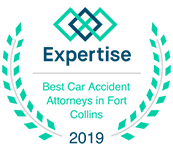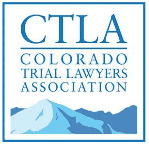Request a Free Consultation | No Upfront FeesSe Habla Español
970-225-2190 |
1-800-664-3151
Recent Blog Posts
What Should I Do if I Am a Victim of a Hit-And-Run Car Accident?

Following a motor vehicle collision, the drivers involved are required to remain at the scene, render any necessary aid to those who have been injured, and exchange contact information with each other. Unfortunately, some drivers choose to flee the scene of a collision, and these hit-and-run car accidents can leave victims suffering from severe or fatal injuries. The Denver Post reports that, as of Thursday, May 28, 2020, the city of Denver has recorded 1,899 hit-and-run accidents since the beginning of the year, averaging approximately 390 incidents monthly. Drivers who have been involved in these types of accidents will want to understand the steps they can take to pursue compensation if the other person leaves the scene.
Four Steps to Take After a Hit-And-Run
How Can Colorado Bicyclists Stay Safe and Avoid Accidents?

The summer months are approaching, and bicyclists are going to flock to the roads in Colorado. As such, it is worth reviewing the rules of the road regarding how drivers and cyclists are supposed to interact. Using a few safety strategies can help avoid any unnecessary bike accidents. However, it is impossible to control the actions of others on the roadway, and negligent behavior by drivers can lead to serious injuries for cyclists. If you were injured in an accident while riding your bike, it is important to discuss your case with a personal injury attorney as soon as your immediate medical needs are addressed. Seeking compensation in Colorado requires finding fault with the other driver or cyclist involved, so you will need strong representation from a legal team you can trust.
How Does the Made Whole Doctrine Affect Insurance Claims in Colorado?

Colorado’s relatively new Made Whole Doctrine serves to protect you from losing all or a significant amount of your liability claim benefits to an insurance company. It is important to understand how this law works so that you know you are getting the compensation that you deserve if you have suffered a personal injury due to another party’s negligence. Even though this law is designed to protect you, you still must work with a qualified personal injury attorney to pursue compensation in court and ensure that insurance companies are not violating any part of the Made Whole Doctrine.
Compensation Before the Made Whole Doctrine
Before the Colorado legislature amended state insurance laws to include the Made Whole Doctrine, health insurance companies or medical providers were allowed to subrogate (substitute themselves as the primary recipient of your personal injury claim) to guarantee that their costs were covered in full before you, the insured, received any compensation. As you could imagine, this caused a lot of problems. For example, if you were involved in a car accident and accrued medical bills that totaled $150,000, but you only received $100,000 in compensation from an at-fault driver's insurance policy or a personal injury lawsuit, the health insurance company could take the entire amount of compensation you received, and you would still be at a loss. Since the goal of compensating an injured party for his or her losses should not harm him or her financially, the Made Whole Doctrine needed to be implemented.
How Can Proper Auto Maintenance Prevent Car Accidents in Colorado?
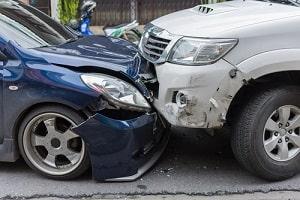
Although other drivers’ actions are unpredictable, there are two things all motorists can do to help avoid auto accidents, including driving safely and properly maintaining their vehicles. Typically, people are often reminded to obey traffic laws, pay attention at all times, and to stay sober when driving. However, faulty or worn-out auto parts can also cause collisions with minor to serious injuries. Since Colorado is an “at fault” state, a driver who does not properly maintain his or her vehicle can be deemed at fault for negligent maintenance and upkeep. If you have been in an accident that involves broken or faulty vehicle components, you should work with an experienced personal injury attorney to determine your legal options, especially since these types of cases can be more complicated than your average fender-bender.
How Can I Receive Medical Attention for a Work Injury in Colorado?
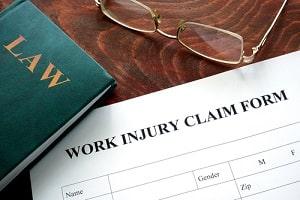
Every job comes with certain risks, and some occupations can be more dangerous than others. If you suffer a workplace injury in any type of industry, the consequences can be devastating. It is imperative that you seek proper medical attention quickly. However, Colorado has a specific timeline and method that employers and workers must follow regarding the choice of a medical provider. A knowledgeable workers’ compensation attorney can play a key role in this process, as they will be able to help you navigate the law and ensure that you receive the benefits that you deserve.
Selecting a Medical Practitioner
Colorado law dictates that either an employer or his or her workers’ compensation insurance company has the right to choose a designated medical provider. In most cases, a victim of a workplace injury must be given a list of at least four physicians or corporate medical providers to choose from if available. This is to prevent a victim from not having any say in the matter. To ensure that the selections are at least somewhat diverse, one of the doctors on the list must have distinct ownership. This means that an employer cannot just present a list of providers who are under shared ownership and at the same location.
How Do I Determine if My Vehicle Is Totaled After a Car Accident?
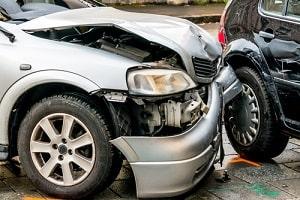
If you have been in a car accident there are a variety of steps you should take to protect yourself in the immediate aftermath. You must first seek emergency medical attention if necessary, then report the accident and exchange insurance information with the other driver. You may be wondering what to do next if your vehicle is significantly damaged. The window of time after an accident can be stressful, but taking the right steps during this time can ensure that you are properly compensated for property damage, as well as any injuries you suffered in the collision. By receiving legal assistance from a personal injury attorney, you can be sure that you will be properly compensated for all of your damages.
What Are Colorado’s Total Loss Laws?
“Totaling” or “totaled” are words that often get used as slang for vehicles that are not functional or are undrivable, but drivers may not understand what these terms actually mean. To "total" a car means to declare it a total loss, which dictates how you and your auto insurance provider will move forward. A car does not have to be a complete wreck to be totaled. Instead, the cost of repairs must exceed a certain threshold, which may differ from state to state. In Colorado, that threshold is 100 percent. That is, Colorado legally requires insurers to declare a vehicle a total loss if the estimated repair costs would exceed the market value of that vehicle.
Can I File a Workers’ Comp Claim Due to Overexertion in Colorado?
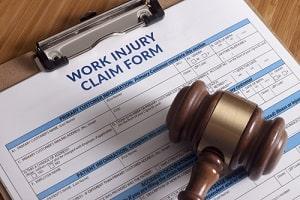
A workplace accident can occur even when proper protocol is followed. Whether you work in a physically taxing job such as construction, or you are in an office setting, it is important to understand the protection that you have under workers’ compensation laws. In general, all companies in Colorado are required to carry workman’s comp insurance to cover their employees in the event of an accident. Some injuries are relatively minor, while others can result in permanent disability or even death. If you were hurt while performing your job, you may need significant rehabilitation, or you may be unable to continue working at your full potential. That is why it is imperative that you consult an experienced workers’ compensation attorney to learn your options regarding benefits.
What Is “Overexertion”?
What Do Auto Insurance Plans Cover in a Colorado Car Accident?
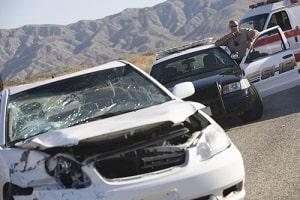
Every driver in Colorado is required to carry car insurance in case of an accident. If you or a family member are involved in a vehicle collision, it can be difficult to maintain a clear mind and understand exactly what your policy covers. Most policies function similarly, so the guidelines here will likely apply to you in many ways. However, even when you have a general understanding of your auto insurance policy and relative confidence in determining what the other party’s policy covers in an accident, it is imperative that you obtain sound legal advice from a personal injury lawyer to protect your rights.
Legal Aid When Seeking Damages
Before diving into what your and another driver’s insurance policies cover in a crash, it is important to understand how vital legal guidance can be after you or your loved one are involved in a car accident. In many cases, determining which driver is at fault is not that simple. A police report might not accurately describe what happened, or there may be other mitigating circumstances, like a nearby construction zone. Even if there were just minor injuries and vehicle damage, a skilled attorney can help you establish liability for the collision, and they can negotiate with insurance companies and help make sure that you receive the compensation you need and deserve. That is why it is essential that you contact an attorney first before talking to any insurance company, including your own.
What Laws Affect Motorcyclist Safety in Colorado?

Operating a motorcycle in any state requires a certain level of responsibility, and this can often exceed the level of care needed to safely drive a passenger or commercial vehicle. Motorcyclists should be sure to follow all state laws. These laws are in place to help keep motorcyclists and their passengers safe and to reduce the number of motorcycle accidents. Many of these regulations might seem like common sense, but it is important for motorcyclists to be aware of considerations that do not necessarily apply to car drivers. It is imperative that you familiarize yourself with laws and safety procedures before you hit the open road, and this can help you prevent crashes and serious injuries.
Colorado Motorcycle Laws
Even if you already consider yourself a cautious motorcyclist, it is best to fully understand the laws that you must follow. You should bear the following three categories in mind:
Can an Accident Ever Be the Pedestrian’s Fault in Colorado?

While many people believe that pedestrians always have the right of way when crossing the street, the truth is that pedestrians are not infallible. They can make mistakes just like drivers do, and this probably occurs more often than you might think. In fact, many pedestrian accidents and pedestrian deaths in Colorado over the last few years have been clear cases that illustrate the pedestrian was at fault. In other cases, the collision may involve a combination of fault by both the driver (or drivers) and the pedestrian. Below are some circumstances in which a motorist may not be at fault, and a pedestrian may be liable for any damages and injuries.
When the Driver Is Not at Fault
Pedestrians might believe that if they are hit by a car, it will almost always be the driver’s fault. However, a driver may not be at fault if all of the following can be proven in court:

970-225-2190 | 1-800-664-3151
1403 W. 29th St.,
Loveland, Colorado 80538
Greeley:
3835 W. 10th Street, Unit 100,
Greeley, Colorado 80634|
970-460-2220
Longmont:
353 Main Street, Suite A,
Longmont, Colorado 80501|
720-575-0509
Boulder:
4450 Arapahoe Avenue, Suite 100,
Boulder, Colorado 80303|
303-997-2018
Ft. Collins:
1109 Oak Park Dr Ste 100,
Fort Collins, CO 80525|
970-225-2190
Cheyenne:
109 E. 17th St., Suite #6148,
Cheyenne, WY 82001|
307-227-4051 (By Appointment Only)




